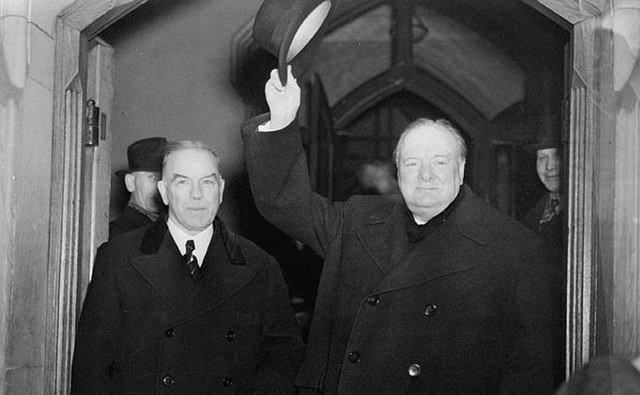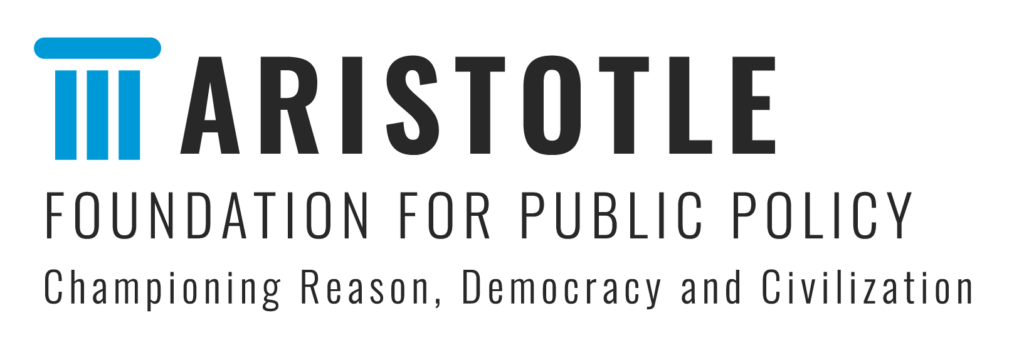
David Bercuson, Calgary Herald, May 22, 2024
Put the words “Winston Churchill defaced” into Google and scan the pictures that come up: A Churchill statue covered in red paint, or another boxed up to preserve it from being defaced. Then there are the words used (by some) to describe Churchill today: imperialist, racist, empire lover.
According to the loudest of the obtuse passing judgment, Churchill was a Colonel Blimp who championed the worst excesses of British Imperialism and thus not worthy of respect in our modern, all-knowing, assumed-morally superior times.
I blame our education system: Ignorance of history is now so pervasive in our schools that the Second World War or any military/diplomatic history is considered not worth covering.
And that’s a tragedy. The greatest, most murderous, most destructive war in human history pitted three fascist powers against half the world, killed over 70 million people, and wrecked Europe, the Soviet Union, much of China and many other places. That war moulded our era but is today a blip in social studies curriculums across Canada.
As we head toward the 80th anniversary of D-Day, that momentous invasion of Normandy, which began the bloody, necessary clawing back of Europe from genocidal Nazis, and the leaders who brought about that crucial victory are all but forgotten.
Winston Churchill is the best example of our collective amnesia: A corrective: Here’s what everyone should know, regardless of their family, ethnic, racial or national origins, about the man who almost alone in the 1930s saw fascism coming, and upon ascending to the prime minister’s office in the United Kingdom in May 1940, demanded it stop.
Churchill’s political career began in the early 20th century after many adventures covering colonial wars for British newspapers. Largely self-taught, he read the great classics while away as a soldier in India. Later, in the early years of the First World War, he was First Lord of the Admiralty, a civilian cabinet minister who was the overall commander of the Royal Navy.
Churchill was largely responsible for one of the great disasters of the First World War – the British attack – using mainly Australian and New Zealand troops –aimed at opening up the Dardanelles to allow a seaborn attack against the Turkish capital of Constantinople. Thousands of lives were lost and the British and Allied troops were forced to withdraw.
The Dardanelles campaign revealed a significant flaw in Churchill’s thinking. Widely read, and as a witness and participant in wars, he thought of himself as a great strategist. But he was not. As prime minister of Great Britain in the Second World War, he often championed campaigns that were most likely to detract from the main thrust of invading Germany and marching to Berlin. He was most reluctant to invade Normandy in June 1944, fearing horrendous casualties. He championed an Allied thrust from the Mediterranean north into Austria and southern Germany.
Churchill also made some huge errors in other areas of political life. When King Edward VIII intended to take the throne after the death of his father George V, while marrying an American divorcee, Churchill supported Edward. However, the Church of England, Prime Minister Stanley Baldwin, and the prime ministers of the British dominions (including Canada) opposed his succession to the throne. Churchill was also dead set against autonomy of any kind for India (let alone independence) and the Statute of Westminster of 1931 that finally gave Canada and the other British Dominions, as they were called, full independence.
But the one decision Churchill made in the spring of 1940, just after becoming Prime Minister of Great Britain on May 10, was to stand fast against Hitler. Churchill rallied the British people, under a rain of German bombs that eventually killed tens of thousands of Londoners and others, to resist Hitler to the death. “We shall never surrender” he declared in the House of Commons (and later on the radio), a clarion call to his fellow citizens.
That one decision saved human civilization. All that we know and enjoy now in our lives stemmed from his indomitable will. He did not defeat Hitler by himself, but he could have lost the war by himself. We will owe Churchill our civilization as long as we walk this Earth.
This column was written as part of the Sir Winston Churchill Society of Calgary’s series on the 80th anniversary of D-Day and in partnership with the Calgary Herald, a Society sponsor since 1966. The Churchill Society’s D-Day commemoration banquet on June 6th will feature the great-grandson of Winston Churchill, Randolph Churchill, as the keynote speaker. Dinner tickets are available at www.churchillcalgary.ca.
Dr. David Bercuson is a professor of history at the University of Calgary.
Like our work? Think more Canadians should see the facts? Please consider making a donation to the Aristotle Foundation.

The logo and text are signs that each alone and in combination are being used as unregistered trademarks owned by the Aristotle Foundation. All rights reserved.
SUBSCRIBE TO OUR NEWSLETTER
SUBSCRIBE TO OUR NEWSLETTER

are signs that are each alone and in combination are being used as unregistered trademarks owned by the Aristotle Foundation. All rights reserved.
SUBSCRIBE TO OUR NEWSLETTER

SUBSCRIBE TO OUR NEWSLETTER
